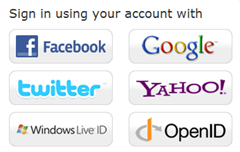A few years ago, Google started poking the government to act on Net Neutrality. The motive behind Google’s goal is well intentioned. But practically, it is foolish. We’re inviting a beast into our industry that is more devastating than any beast we’ve yet imagined. Eventually, Google will come to oppose the very legislation that it helped create.
The main problem with Net Neutrality is that we don’t need it. The market works. There are many choices for network access today, and you can access your favorite sites from Amazon to Wikileaks from almost anywhere in America. We have access to the internet at home, in libraries, in schools and at work. Who is not getting access again?
For individuals, the real debate is that some people want more bandwidth to more remote areas and they want someone else to pay for it. Steve Wozniak, the eccentric co-founder of Apple, was very clear about this. He wants to live on a remote hill, pay $29/mo, and have everyone else be required to pay to run the cables to his secluded hide away for fast internet access. Steve’s argument is not new. Many people have made the same argument far more elegantly. They claim it “costs too much†for the high speed links and that dialup is unreasonably slow, or that “there is only one provider in my areaâ€, etc. None of those arguments hold. These very same people still have access through wireless, through dialup, at work, at school, at the library, and at about a half million Starbucks or McDonalds across the planet. And their access grows every single day! They just want it cheaper.
Finally, the most important part of net neutrality is ensuring that content is available to everyone. (No, this doesn’t mean you should get to watch your “Family Guy†or your favorite TV show for free) Most of us hold at least some fear that eventually a big company (Comcast, AT&T, or Verizon, or Google) will screw the little guy by using their monopoly to restrict content and maximize profits. This fear is reasonable, because censorship on a grand scale would be a horrible thing for all of us. But it’s not happening, and there is no evidence of it happening any time soon. Further, if it ever did happen, customers can and would revolt. Competition provides us everything we need.
But our fears of corporations are grossly misplaced. There is someone far more scary, with vastly greater power that we should fear – the US government. There is simply no company that can wreck devastation at the scale of the US government. Who’s rules are more scary – Comcast’s rules (sorry to pick on you, Comcast!), which would only apply to those that pay Comcast money? Or Uncle Sam’s rules? And every 4 years we elect a new set of politicians. Even if we trust the politicians today, what happens when we get into a war, or have a 9/11-type event, and suddenly a “temporary†cease of terrorist communications is required? (Did we forget about the TSA already?) Who’s the terrorist? Is Wikileaks a terrorist? Is Wikipedia? What if you have a science blog about particle physics? Can you be shut down too? The government is what you should fear. Not a piddly little Microsoft, Google, or Comcast.
Ok, but why will Google rue this?
With continued prodding from Google and others, legislation will be passed, and today was a starting point. Whatever they pass will be costly to companies and will cause that cost burden to be passed on to customers like you and me. Further, it will put America at a disadvantage in our global marketplace. All to solve a problem that doesn’t exist.
The first problem they’ll create is that of cost. Every law has enforcement, and that means we pay people to define the specific rules, monitor compliance with those rules, and enforce punishments for those that do not obey. This will cost billions of dollars and be spread into the margins of every content provider and ISP in America. Of course, those companies will pass the cost onto their customers. This means the price of DSL, Cable, AOL, and Netflix will all rise. (I still think costs are heading down overall, but they could decrease faster without net-neutrality)
Second, it will snowball from “fair access†into content filters (aka censorship). Initially, it might include banning certain forms of pornography. It might even seem like something you agree with. But with each new regulation, our freedoms are diminished. Then, we might enter into a particular international conflict “requiring†a ban on certain types of communications to keep us safe. With the content filters in place, the variety and types of information we can publish and read diminishes, and it is all out of our control. You can’t switch providers to escape the unfairness of it all.
Finally, remember that America is in a global marketplace. If our legislators legislate too much, Internet companies will simply move out of the country, taking the jobs, the profits, and the tax revenues with them. This has already happened – gambling is alive and well on the internet – it just runs out of Costa Rica, Antigua, and other disputable places – leaving consumers at risk while simultaneously sticking America with a bill to ensure that gambling doesn’t happen here. How silly! Now the government will need to block outside access, or credit card payments to certain areas in order to keep Americans safe from information.
Google’s mission is “to organize the world’s information and make it universally accessible and useful.†But with our own Government censors and the massive costs created to enforce “net neutralityâ€, Google will find this mission impossible to accomplish. And that is when Google will rue the day…
Note: This article solely represents the views of a far-too-opinionated software engineer, and does not represent the views of his employer in any way.


 I’ve not updated theme or features of
I’ve not updated theme or features of 

